Photo exhibit: Alluring, ancient Xiangxi
- By Feng Zhiwei and Wen Xinzheng
 0 Comment(s)
0 Comment(s) Print
Print E-mail China Daily, May 5, 2014
E-mail China Daily, May 5, 2014
The picturesque cities of Zhangjiajie, Huaihua, Shaoyang and Changde cities and surroundings in western Hunan province, or the Xiangxi region, are considered a "golden route" for tourism due to their scenery, culture and history, said local officials.
As well, Fenghuang, or phoenix, is "the farthest from the public and nearest to the heart", according to New Zealand author Rewi Alley, who also wrote that it "is one of the two most beautiful towns in China".
The country's first ancient commercial town Hongjiang, which was vibrant as early as the Spring and Autumn period (770-476 BC), still has an array of well-preserved ancient buildings dating back to the Ming (1368-1644) and Qing (1644-1911) dynasties.
|
|
|
The Tuojiang River in Fenghuang, which New Zealand author Rewi Alley termed "the farthest city from the public and nearest to the heart". Yang Dongqiao/For China Daily |
|
|
|
Langshan Mountain is a UNESCO world natural heritage site. He Zhihong / For China Daily |
In the fairytale Zhangjiajie, tourists can experience a landscape said to have inspired some of the settings in the blockbuster film Avatar.
Travelers can also seek the secret of longevity in Mayang, where 45 residents are now more than 100 years old.
As well, relics of Daqin Library Cave found deep in the mountain date from the end of the Qin Dynasty (221-206 BC), the first dynasty of China.
The world's oldest academy of classic learning - Longxing Lecture Temple built in the Tang Dynasty (AD618-907) - sits on a mountain in the town of Ruanling and its still home to academics.
|
|
|
Local Miao people write couplets to celebrate their New Year that falls near the same time as China's Spring Festival. Zhou Jianhua/ For China Daily |
|
|
|
Yongshun was home to Tusi cheiftains that governed parts of Hunan, Hubei, Guizhou for 800 years beginning in the 10th centrury. Li Yongsheng / For China Daily |
|
|
|
The Sister Peak and the Aizhai Bridge in Jishou. The bridge built in 2012 facilitates the transportations for the Miao and Tujia ethnic people dwelling in Aizhai. Wang Fang / For China Daily |
|
|
|
Zhangjiajie turns into a fairytale world in winter. Lu Qixing / For China Daily |
Photo show
The "Magnificent Xiangxi Photo Exhibition" brings all that and more, showing an incredible world of scenery, folk customs and achievements since the reform and opening-up began in the late 1970s.
Sponsored by the Information Office of Hunan provincial government and the Hunan Photographers Association, the exhibition displays the best of 20,000 works submitted.
It offers unforgettable moments, captivating stories and scenes including Wulingyuan and Langshan mountains, two UNESCO world natural heritage sites.
Neighboring scenery is noted for more than 3,000 quartzite sandstone pillars, many more than 200 meters high, along with numerous ravines and gorges with streams, pools and waterfalls.
Two-thirds of Xufeng Peak and Wuling Mountain are covered by forests.
Photographers discovered the breathtaking environment for growing so-called icy sweet oranges, golden autumn pears and the Jingzhou red bayberry.
Photographers also took boats on the Ruanjiang and Youshui rivers, capturing in pictures of the rivers, waterfalls, and range upon range of mountains.
In Xiangxi, some 40 ethnic groups including the Tujia, Miao, Yao and Dong live in harmony
The photographers' lens captured their ancient towns, relics and scenes of folk singing and dancing.
Numerous festivals photographed include those for women, folk singing, dancing and the annual Lantern Festival with more than 200,000 participants.
The photographers' works also depict hometowns of author Shen Congwen, painter Huang Yongyu and Song Zuying, all household names in China who were born in the region
As well, the works show the development of the province resulting from a range of government initiatives.


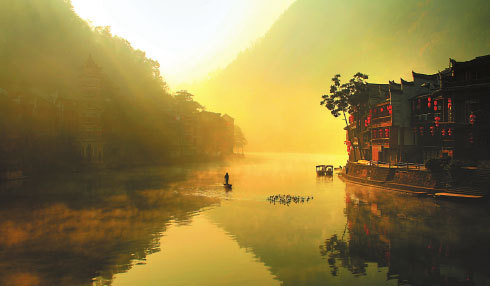
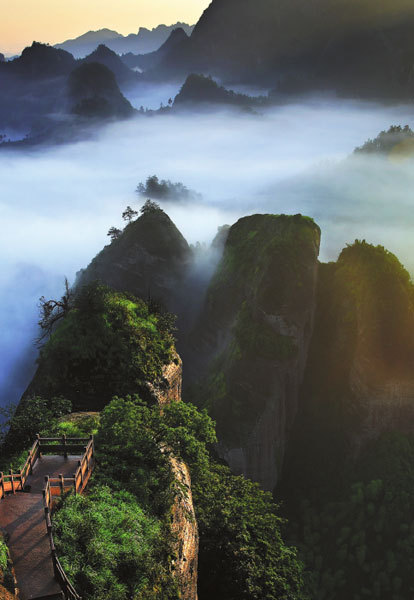
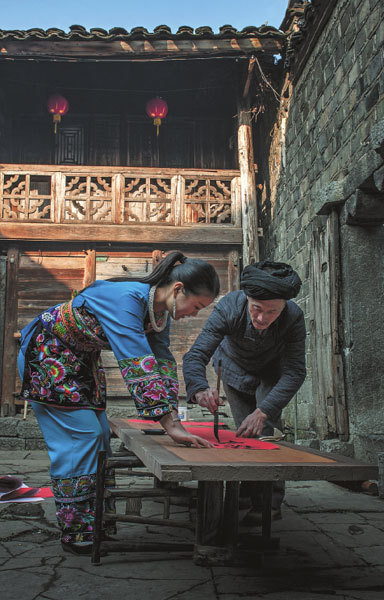
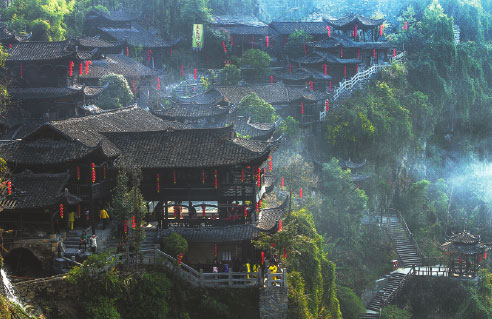
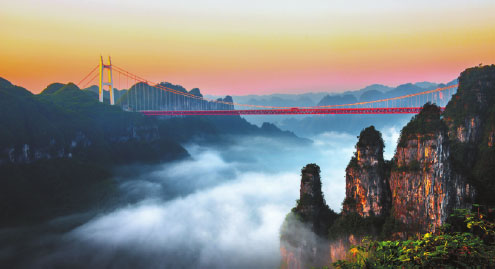
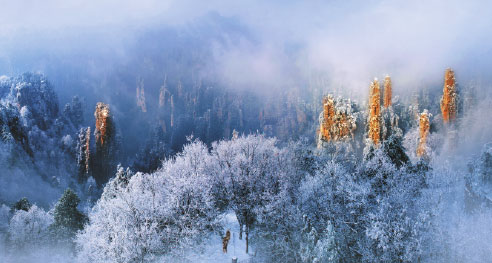





Go to Forum >>0 Comment(s)